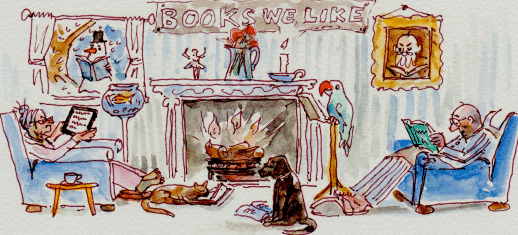Books
by Emile Zola
|
Germinal |
In this his masterpiece which centres on a strike in 1860's N. France, Zola not only brings to life the desperate needs, the cruelty and greed, the love and humanity of his characters - be they the poverty-stricken miners, the idealistic Marxist, the arrogant anarchist or the comfort-loving bourgeoisie - he plunges you, almost literally, into the depths of the mine itself: the smells, the heat, the claustrophobia, the noise, the constant brooding presence of its awfulness. Truly unforgettable.
(Jenny Baker - bwl 64 Spring 2012) |
|
|
L'Assommoir |
Recently arrived in working-class Paris, Gervaise is a young mother who struggles to provide for her family and find happiness for herself. She manages to build a successful business as a laundress, only to lose everything because of her desire to impress and her eventual addiction to alcohol. The characters and powerful descriptions of the poverty and squalor in which they live are totally convincing and utterly memorable.
(Denise Lewis - bwl 59 Winter 2011) |
|
|
La Bête Humaine |
This riveting story of passion, greed and murder is a serial novel about a potential serial killer, and a railway novel which takes a novel look at railways. Zola believed in atavism and Jacques is cursed with 'an awful hereditary disorder' which drives him to sexual possession and murder. He lives in a society governed by technological progress where some, driven by greed, kill in cold blood. Should we accuse or excuse? As atmospheric and memorable as Germinal (bwl 64).
(Denise Lewis - bwl 70 Autumn 2013) |
|
|
Nana |
Nana (daughter of Gervaise - L'Assommoire) grew up working as a prostitute on the streets of Paris. Her beauty propels her onto the stage and she becomes the Second Empire's Helen of Troy. However, she represents Zola's belief that heredity, environment and the dynamic momentum of a particular period determine personality and is therefore portrayed as a disease, infecting and destroying everyone she touches - a symbol for his denunciation of moral corruption in society as a whole.
(Denise Lewis - bwl 59 Winter 2011) |
|
|
|

